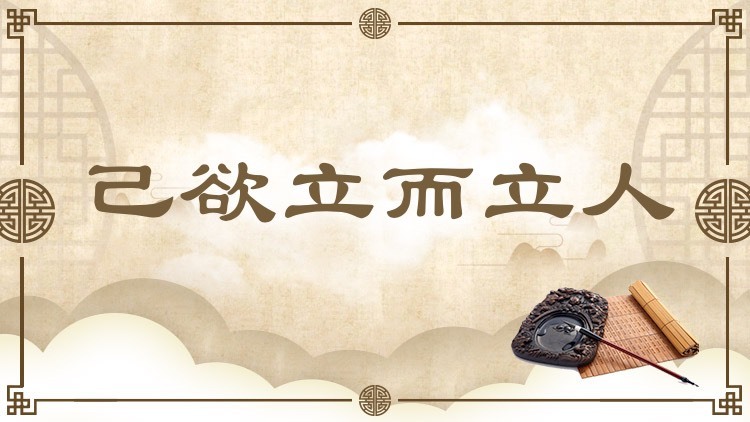While Seeking to Establish Oneself, One Strives Also to Establish Others

自己想要立身而使他人也能立身。“己欲立而立人”一说的完整表达是“己欲立而立人,己欲达而达人”。该说由孔子(前551—前479)提出,是儒家所主张的“恕”道的一种表现。按照“恕”道的要求,人们应以自身的感受与意愿去理解、体贴他人,做到推己及人。从喜好与追求的方面而言,自己想要立身与通达,就要理解他人也会有同样的追求。因此在自己立身与通达的同时,也要辅助他人使之达成立身与通达的目标。
The more complete rendering of this concept is "while seeking to establish oneself, one strives also to establish others; while seeking to enhance oneself, one strives also to enhance others." The concept was coined by Confucius (551-479 BC) as an expression of his doctrine of being considerate, which requires people to understand and be considerate of others with their own feelings and aspirations, and putting themselves in the position of others. In terms of preferences and pursuits, if one wants to be established and enhance oneself, one must understand that others may want the same, and should assist them to do so.
引例 Citation:
◎夫仁者,己欲立而立人,己欲达而达人。(《论语·雍也》)
具有仁德的人,自己想要立身也使他人能够立身,自己想要通达也使他人能够通达。
When the man of perfect virtue seeks to establish himself, he seeks also to establish others; when he seeks to enhance himself, he strives also to enhance others. (The Analects)
推荐:教育部 国家语委
供稿:北京外国语大学 外语教学与研究出版社
责任编辑:钱耐安





